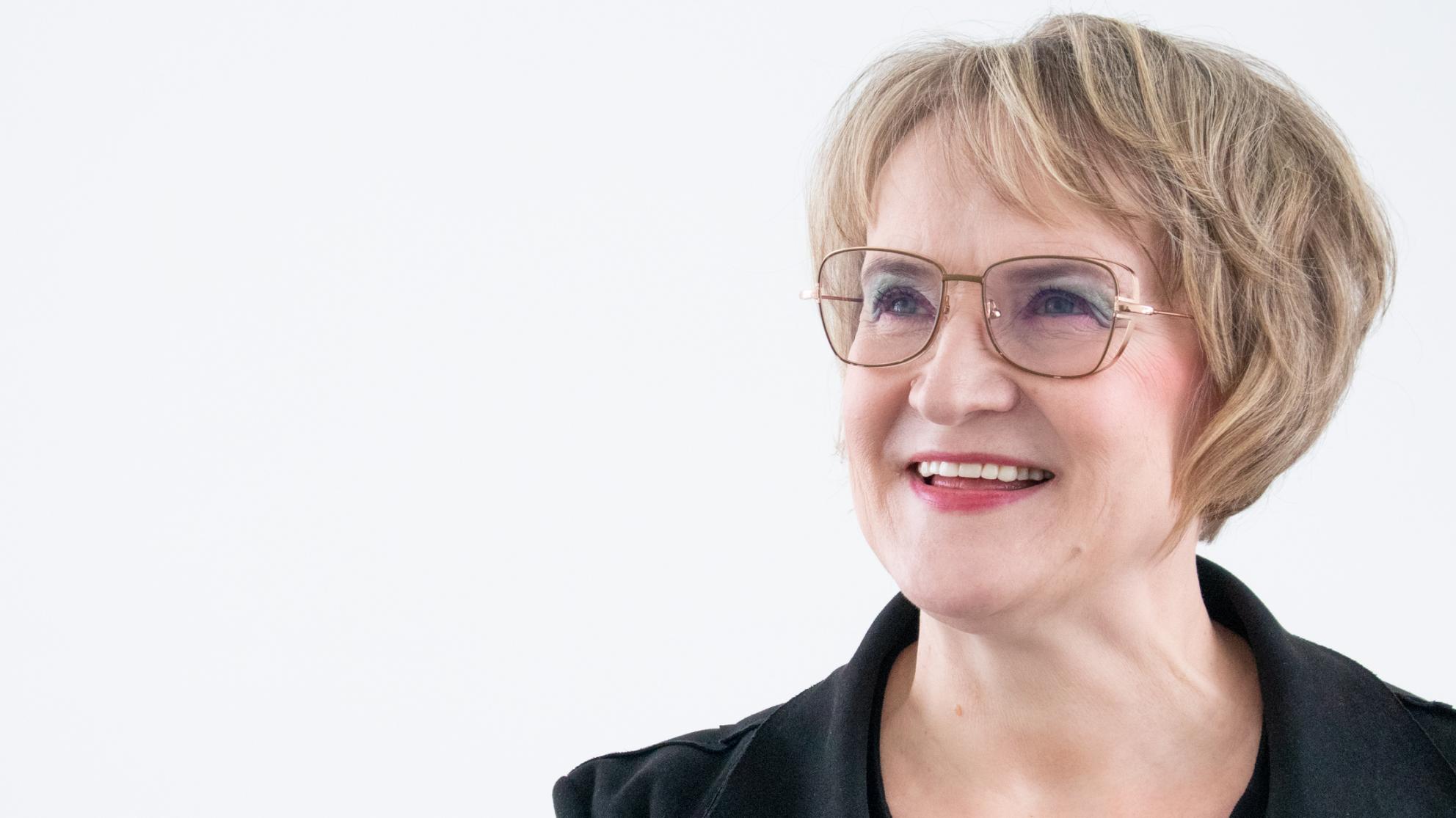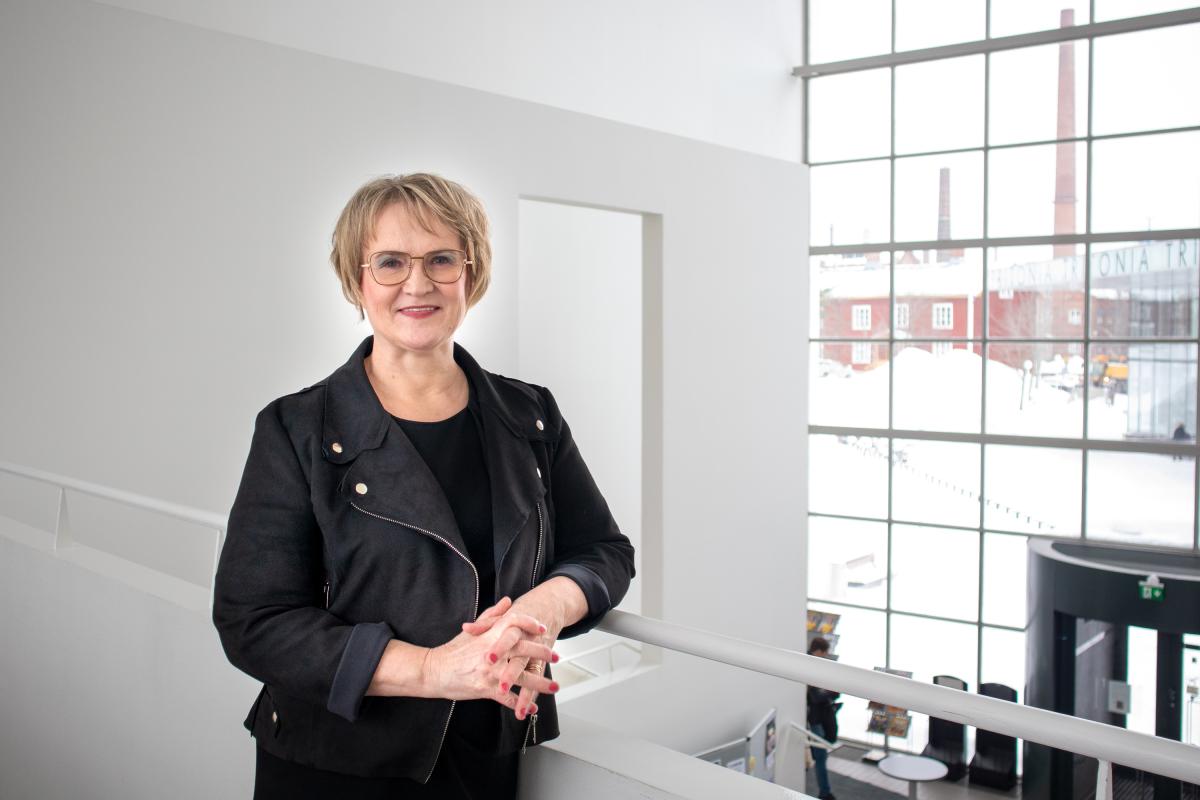Dissertation: First-time entrepreneurship at 50+ – part of the midlife transition?

– Psychologically, the midlife transition at 50 is a significant period in a person’s life. It is a time of great changes in both professional and personal life if there is a need for such and if the person feels that they have missed out on something in their life. My research shows that this stage of life pushes people to make big changes in their lives because, in reality, they still have a long career ahead of them before retirement, says Varpu Sankelo, who will publicly defend her doctoral dissertation at the University of Vaasa on 25 February.
People who start their first business at 50+ have been planning and dreaming of entrepreneurship for years. Passing the milestone of 50 is the spark that can turn daydreams into action.
– Although the internal desire for change is strong, first-time entrepreneurs over 50 need an external impetus to get them to act. Entrepreneurship is not something they just walk into, as people over 50 consider their moves very carefully, adds Sankelo.
Varpu Sankelo’s doctoral dissertation in the field of management examines the first-time entrepreneurship of people over the age of 50. It studies the identity and self-identification of entrepreneurs through the concept of agency. It also examines the impact of the person’s stage in life on becoming an entrepreneur.
As a phenomenon, first-time entrepreneurship at 50+ more complex than expected
Entrepreneurs over 50 have strengths that help them succeed in their entrepreneurial endeavours. These strengths enable older employees to choose entrepreneurship as a way of extending their careers and having a more fulfilling later career.
The stories of the entrepreneurs highlighted the fact that first-time entrepreneurship at 50+ can also be economically significant, far-reaching, job-creating, growth entrepreneurship, thus contributing to regional prosperity. The interviews highlighted a desire to prove their skills both to themselves and others and to be paid on the basis of their hard work.
First-time entrepreneurs over 50 are flexible
According to the results of Sankelo’s doctoral research, there are three types of agency with which the individuals advanced in their entrepreneurship: forward-striving agency, emotional agency and adaptable agency. The agencies changed the identity of the entrepreneurs at different stages of their entrepreneurship, and it was clear that the entrepreneurs were flexible in their entrepreneurial identity. In addition, a strong self-efficacy, i.e. the individual’s belief in their ability to cope with different situations and tasks, manifested in the early stages as growth entrepreneurship, job creation or high profits. In the doctoral study, Sankelo constructs a process model of the elements required for the first-time entrepreneurship of persons over 50.
Over-50s use and expand their skills as first-time entrepreneurs
Sankelo’s research reveals that entrepreneurs who start their businesses at a more mature age are cognitively capable and eager to learn new things. Although entrepreneurship is based on existing skills, the study shows that first-time entrepreneurs over 50 enter entrepreneurship precisely because they want to develop and expand their professional skills during the entrepreneurship period and to implement their entrepreneurial ambitions by avoiding the weaknesses they identified in previous jobs.
– I encourage those who feel that they possess the professional skills required to run their own business to become entrepreneurs. Entrepreneurship enables people to expand their professional identity by learning new things. The entrepreneurs I interviewed saw entrepreneurship as an opportunity to influence their own lives and to work according to their own values, says Sankelo.
Ethical values emerge with age
– Psychologically, entrepreneurs over 50 do not feel old, so society should stop discriminating against older people through legislation and give everyone the opportunity to continue to work until the age of retirement. The life experience that comes with age should be valued, and people who understand the big picture of life and emphasise ethics seem to be particularly successful at entrepreneurship, says Sankelo.
For her dissertation, Sankelo examined the life stories of four entrepreneurs who started their first business at over 50 in two different stages six years apart. A longitudinal study on 50+ entrepreneurship has not previously been carried out, so the study is unique in this respect. The data collected through thematic interviews were analysed using content analysis.
Doctoral dissertation
Sankelo, Varpu (2022). 50+ -ensiyrittäjien identifioituminen ja kerrotut identiteetit toimijuuden rakentamina prosesseina. Acta Wasaensia 482. Väitöskirja. Doctoral Dissertation. Vaasan yliopisto.University of Vaasa.
Publication pdf: https://urn.fi/URN:ISBN:978-952-395-013-9
Väitöstilaisuus
The public examination of M.Sc. Varpu Sankelo’s doctoral dissertation "50+ -ensiyrittäjien identifioituminen ja kerrotut identiteetit toimijuuden rakentamina prosesseina" will be held on Friday 25.2.2022 at 13 at the University of Vaasa.
Participation in the defence is possible online: https://uwasa.zoom.us/j/68301105679?pwd=TTVrOFg5MW4vOEZRNlhCKzgyU2p5Zz09
Password: 812681
Professor Ulla Hytti (University of Turku) will act as an opponent and Professor Jukka Vesalainen as custos. The defence will be held in Finnish.
Further information
Varpu Sankelo, tel +358 40 525 1355, email: varpu.sankelo (@) gmail.com
